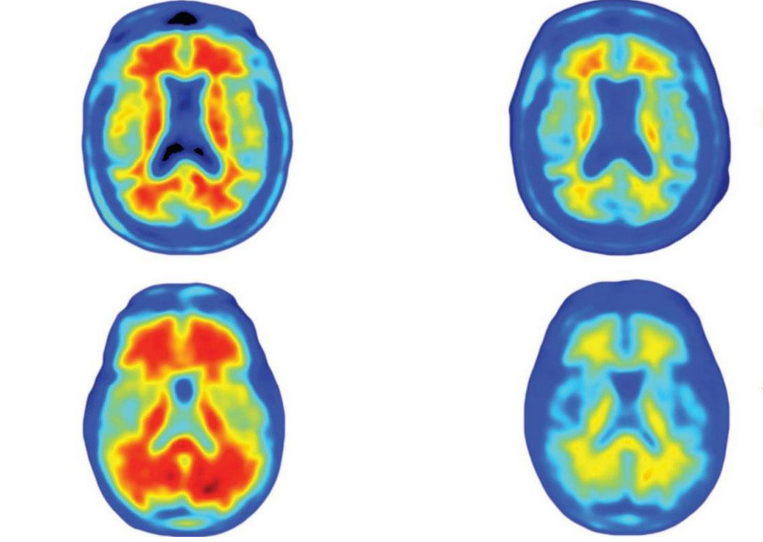New Alzheimer’s Drug ‘Could Stop Disease From Progressing’

A promising new Alzheimer’s drug slowed the progress of the disease in patients - in a trial which raised hopes that a treatment could be found.
The drug - aducanumab - reduced build-up of amyloid plaque proteins in the brains of 165 patients over six months.
One leading theory of the disease is that these clumps of protein are the cause of the impairments experienced by Alzheimer’s patients.
The trial of 165 patients is small, though - and so two much larger trials of the drug are now recruiting 2,700 patients in 20 countries to see if the effects are replicated.
Professor Roger Nitsch, of Zurich University said, ‘One year later, the images of the placebo group are basically unchanged. In the three doses groups, a very clear reduction in amyloid plaques is shown – the higher the dose, the larger the degree of reduction.
‘In the 10mg dose group, after one year you can see no red on the image, meaning the amyloid has almost completely disappeared.
‘Compared to other studies published in the past, the effect size of this drug is unprecedented.
Alzheimer’s experts welcomed the results but cautioned that it is too early to know whether the drug will help patients.
Professor Eric Reiman, writing in Nature, says, ‘If these preliminary cognitive findings are confirmed in larger and more-definitive clinical trials, which are now under way, it would provide a shot in the arm in the fight against Alzheimer’s disease.’

 Yahoo News
Yahoo News 
